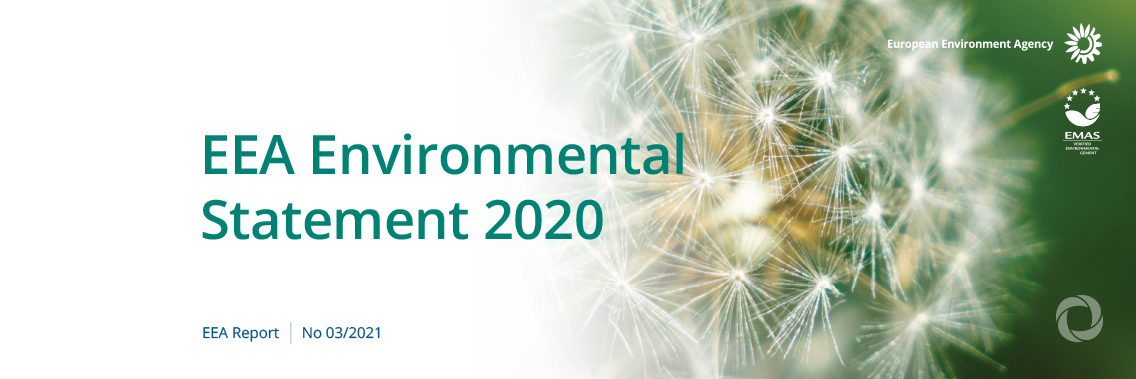The European Environment Agency’s (EEA) latest environmental performance evaluation, published on May 27, shows that the Agency’s work and operations in 2020 led to considerably lower impacts on the environment due mostly to restrictions imposed by the COVID-19 pandemic.
The evaluation showed substantially lower consumption of electricity, paper and lower CO2 emissions from business travel and meetings, keeping the EEA on track to achieve its internal environmental targets for 2020. Specific targets include efforts to maintain zero growth in electricity consumption, to cut paper printing by 10 %, and a 3 % reduction in emissions for staff and visitors’ travel (based on the 5-year rolling average for 2015-2019). Because of the COVID-19 pandemic, the EEA temporarily stopped almost all business travel and physical meetings at the EEA’s premises as of March 2020 and most of its staff worked from home.
The target for the EEA’s waste generation, however, was not achieved because of increased building and electronic waste generated by ongoing renovations of its premises in Copenhagen. The target for 2020 was a 5 % reduction in weight (kilograms) in total waste (based on the rolling 5-year average for 2015-2019).
“As the European Environment Agency, we want to set a good example when it comes to reducing our impact on the environment, creating an Agency that operates as sustainably as possible. This will not be easy, but during the COVID-19 pandemic, like many institutions, we have shown remarkable resilience and flexibility and adopted new approaches and tools to carry out our work. We will not return to our old ways. We will build on our recent experience as a catalyst towards achieving our commitment to become a carbon-neutral Agency by 2030,” said Hans Bruyninckx, EEA Executive Director.
The EEA has met the majority of its environmental targets since 2017, including the reduction of office paper consumption, reducing printing of publications, and the lowering of electricity consumption (central computing and server cooling). The annual audit is done in line with requirements under the EU’s Eco-Management and Audit Scheme (EMAS) Regulation.
COVID-19 pandemic as a catalyst for change
The EEA sees the impacts of the COVID-19 pandemic as a catalyst for faster change in its environmental performance, especially in shifting to the paperless office and more widespread use of videoconferencing as a replacement for traveling to meetings. On the way out of the pandemic, it will be important to maintain useful practices and to raise awareness of potential rebound effects, for example, increased paper use if people return to previous printing practices, or rebound effects associated with increased teleworking, such as the potentially greater environmental impact of the home office.
The Agency’s environmental management program for 2021 reflects these considerations in its action plan and targets. In November 2020, the Executive Director decided to raise the level of climate ambition in the EEA’s environmental policy. The EEA is aiming to become a climate-neutral organization by 2030 and to support other European agencies towards sustainability, in particular in the course of 2021 as the EEA chairs the European Union Agencies Network.

